- Clearhaven Recovery Center
- Substance Abuse Treatment
- Drug & Alcohol Rehabs in Falmouth
Addiction Treatment Program in Falmouth, Massachusetts
Drug and Alcohol Rehab in Falmouth, MA
Find your path to long-term healing at our addiction treatment program in Massachusetts at Clearhaven Recovery Center.

Average 5.0 Rated
on Google Reviews
find the help you need now
Understanding Addiction in Falmouth, Ma
Falmouth, Massachusetts is a picturesque town located on Cape Cod, known for its beautiful beaches and charming New England atmosphere. However, like many communities across the United States, Falmouth is not immune to the pervasive issues of drug and alcohol addiction. Substance abuse can affect individuals from all walks of life, leading to devastating consequences for both the addict and their loved ones. Fortunately, there is hope for those struggling with addiction. Clearhaven Recovery Center offers a comprehensive approach to addiction treatment, aimed at helping individuals reclaim their lives and achieve long-lasting recovery.
How Clearhaven Recovery Center Can Help
Clearhaven Recovery Center is dedicated to providing high-quality addiction treatment services to individuals in Falmouth and the surrounding areas. Our mission is to offer compassionate, evidence-based care that addresses the unique needs of each individual. By offering a range of treatment options and personalized care plans, we strive to guide our clients on their journey to sobriety and overall well-being.
substance abuse treatment options
Our Treatment Programs
Need Help?
833.990.4226

Over 30+ Years
Combined Experience

Addiction Recovery at clearhaven recovery center in massachusetts
Addiction Treatment Options in Falmouth, Massachusetts
In Falmouth, there are several addiction treatment options available to cater to the varying needs of individuals seeking recovery. Below are some of the common types of treatment programs that individuals may consider:
Detoxification, or detox, is often the first step in the addiction treatment process. This involves the safe and supervised removal of drugs or alcohol from the body. Detox can be challenging, as withdrawal symptoms can be severe and, in some cases, dangerous. Medical supervision during detox is critical to ensure the safety and comfort of the individual.
Inpatient treatment, also known as residential treatment, involves staying at a rehabilitation facility for a set period of time. This type of treatment provides a structured environment where individuals can focus entirely on their recovery without the distractions and temptations of the outside world. Inpatient programs typically include a combination of therapy, medical care, and support services.
A Partial Hospitalization Program (PHP) is a step-down from inpatient care but more intensive than traditional outpatient treatment. PHPs provide a high level of care and support while allowing individuals to return home in the evenings. This type of program is suited for those who require ongoing medical supervision and a structured daily routine.
The Intensive Outpatient Program (IOP) is a more flexible treatment option that allows individuals to live at home while attending treatment sessions. IOPs are ideal for those who have completed an inpatient program or for individuals who require a structured treatment plan but cannot commit to a full-time residential program. IOPs typically involve multiple therapy sessions per week, including both individual and group therapy.
Outpatient treatment is the least intensive level of care and is suitable for individuals with a strong support system and a lower risk of relapse. Outpatient programs typically involve weekly therapy sessions and ongoing support services. This option allows individuals to continue working or attending school while receiving treatment.
Did you know your insurance can pay for rehab?
Most Insurance Accepted










Treatment at Clearhaven Recovery
What to Expect at a Drug & Alcohol Rehab in Falmouth with Clearhaven Recovery Center
When choosing Clearhaven Recovery Center for addiction treatment, individuals can expect a compassionate, supportive, and professional environment dedicated to their recovery. Our approach includes the following key components:
Upon arrival, each individual undergoes a thorough assessment to determine the appropriate level of care. This assessment includes a medical evaluation, psychological evaluation, and a review of the individual’s substance use history. By understanding the full scope of the individual’s needs, we can ensure that they receive the most appropriate and effective care throughout their treatment. This detailed evaluation also helps us identify any co-occurring mental health conditions that may need to be addressed alongside addiction.
Based on the assessment, a personalized treatment plan is developed to address the unique needs and goals of each individual. This plan may include detox, inpatient care, IOP, PHP, or outpatient treatment, and is continuously adjusted as the individual progresses through their recovery journey. The personalized treatment plan ensures that the individual’s recovery is optimized and adaptable to any changes in their condition or goals, providing the flexibility needed for long-term success. Our team works closely with each individual to track their progress and make adjustments to the plan as needed, ensuring continuous support every step of the way.
Clearhaven Recovery Center utilizes evidence-based therapies to provide effective addiction treatment. Our therapeutic approaches are designed to address both the physical and psychological aspects of addiction, promoting holistic healing. These therapies, backed by research, have been proven to help individuals develop healthier coping mechanisms, rebuild relationships, and create a strong foundation for lasting recovery. We combine individual, group, and family therapies to ensure a comprehensive approach that targets the root causes of addiction and promotes long-term sobriety.
Our facility offers a safe and supportive environment where individuals can focus on their recovery without distractions or temptations. Our team of experienced professionals provides constant support and encouragement to help clients stay motivated and committed to their recovery. In this nurturing setting, individuals have the opportunity to build meaningful relationships with others who understand their struggles, which fosters a sense of community and belonging. This supportive atmosphere creates a healing space where individuals can open up, learn from one another, and grow together.

Recovery starts today
Experiencing Life Changing Treatment
Need Help?
833.990.4226
Request a Callback
Therapeutic Interventions
Therapies Utilized During Addiction Treatment in Falmouth
Clearhaven Recovery Center employs a variety of therapeutic approaches to support individuals in their recovery journey. Some of the key therapies utilized include:
Individual Therapy
Individual therapy allows clients to work one-on-one with a therapist to explore the underlying causes of their addiction and develop coping strategies. This personalized approach helps individuals gain insight into their behavior and make positive changes.
Group Therapy
Group therapy provides a supportive environment where individuals can share their experiences and learn from others who are going through similar challenges. Group sessions foster a sense of community and help clients build a support network.
Cognitive Behavioral Therapy (CBT)
Cognitive Behavioral Therapy (CBT) is a widely-used therapeutic approach that helps individuals identify and change negative thought patterns and behaviors. CBT is particularly effective in treating addiction, as it equips clients with tools to manage cravings and prevent relapse.
Dialectical Behavior Therapy (DBT)
Dialectical Behavior Therapy (DBT) is a form of cognitive-behavioral therapy that focuses on teaching individuals how to regulate their emotions, improve relationships, and handle stress in a healthy way. DBT is especially beneficial for individuals with co-occurring mental health disorders.
Family Therapy
Family therapy involves the participation of family members in the treatment process. This approach helps to repair and strengthen relationships, enhance communication, and create a supportive home environment conducive to recovery.
Holistic Therapies
In addition to traditional therapies, Clearhaven Recovery Center offers holistic therapies such as yoga, meditation, and art therapy. These approaches promote overall well-being and help individuals develop healthy habits and coping mechanisms.
Paying For Treatment
Paying for Drug Rehab in Falmouth: Utilizing Private PPO Health Insurance
Paying for addiction treatment can be a concern for many individuals and their families. However, Clearhaven Recovery Center works with various private PPO health insurance plans to help offset the cost of treatment. Here are some key points to consider:
Insurance Verification
Our admissions team can verify your insurance benefits and provide detailed information about what your plan will cover. This process helps to determine the extent of coverage and any out-of-pocket costs that may be incurred.
In-Network vs. Out-of-Network
Clearhaven Recovery Center may be in-network with certain PPO insurance plans, which can significantly reduce the cost of treatment. Even if we are out-of-network, we can still work with your insurance provider to maximize your benefits.
Financial Assistance
For those who may not have insurance or need additional financial support, we offer flexible payment plans and financing options to make treatment accessible.
Begin Your Journey Today
Clear Haven Recovery is Here to Offer a Helping Hand
If you or a loved one is struggling with drug or alcohol addiction, Clearhaven Recovery Center in Falmouth, Massachusetts, is here to help. Our comprehensive treatment programs, compassionate staff, and evidence-based therapies are designed to support you on your journey to recovery. Don’t wait any longer to take the first step toward a healthier, happier life. Contact Clearhaven Recovery Center today to discuss your personal options for addiction treatment in Falmouth, MA. Let us help you find the path to lasting sobriety and well-being.
Take the first step toward recovery with Clearhaven Recovery Center – your path to a brighter future starts here.



